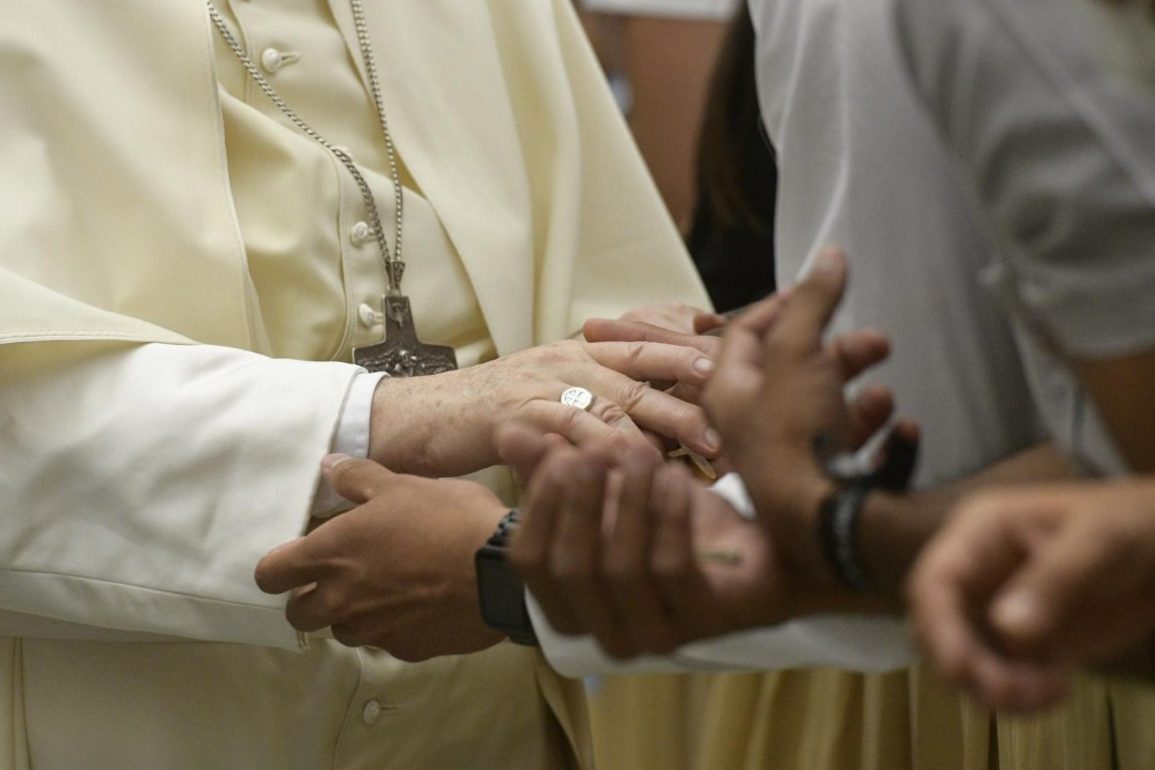During an interview on September 1, 2021, with Spanish journalist Carlos Herrera, Director of the Herrera program on COPE, Pope Francis referred again to the prevailing “throwaway culture,” when speaking about euthanasia, abortion, and migration.
Euthanasia and Abortion
“We are living in a throwaway culture. What isn’t useful is discarded. Old people are a bother; they are material to be discarded. Not all, but let’s face it, in the collective unconscious of the throwaway culture, old people . . . the terminally ill, also unwanted children and they are sent to the Sender before they are born . . . that is, such a culture exists,” explained the Pope.
Then the Holy Father invited to look at “the peripheries,” giving as an example “the great Asian peripheries.” “The discarding of entire peoples. Think of the discarded Rohingyas, ‘gypsying’ around the world. Poor souls; they are discarded. They are of no use, they don’t go; they are useless.” “That throwaway culture “has marked us” and marks “young people and the old. It influences a lot one of the tragedies of present European culture.”
The population pyramid has also “been inverted,” and it’s precisely in “the demographic winter” of births in which there are “more cases of abortion.” The demographic culture “is losing, because the aim is profit. The aim is the one in the way . . . sometimes using compassion!: that he might not suffer, in the case of … In this connection, “what the Church asks for is to help a person die with dignity. She has always done that,” he stressed.
In regard to abortion, the Pontiff said: “I don’t like to enter into a discussion that abortion is possible up to here, but up to there it’s not possible. But I say this: any embryology manual of those handed out to medical students in a Faculty states that at the third week of conception, sometimes before the mother realizes it [that she is pregnant], all the embryo’s organs are defined, including the DNA. It’s a life, a human life.”
Although some think the embryo “isn’t a person,” it is, in fact, “a human life!” Therefore, faced with a human life, “I ask myself two questions: Is it licit to do away with a human life to resolve a problem? Is it just to eliminate a human life to resolve a problem? Second question: Is it just to hire a hitman to resolve a problem? And with these two questions may the cases of elimination of people be resolved — on one side or the other — because they are considered a weight for society.”
Migration
Asked about the problem of migration, the Bishop of Rome said that, faced with migrant people, in the first place four attitudes must be adopted: welcome, protect, promote and integrate.” In regard to the last attitude, the Holy Father added that if “one receives them and then leaves them on their own in the house and doesn’t integrate them, they are a problem, because they feel themselves strangers.” Hence, it’s necessary “to integrate migrants, not only “to welcome them, but to protect and promote them, to educate them, etc. “
In the second place, the Pope said that countries “must be very honest with themselves and see how many they can accept and up to what number and, important here, is the dialogue between nations.” In this connection, he gave Sweden as a model during the time of integration of the immigration due to the military dictatorships in South America (Argentina, Chile, Uruguay): a country that “a few days after the migrant’s arrival he already received a salary to go to school to learn the language. Then work was found for him and, gradually he was being integrated.” “Sweden was an example in these four steps to welcome, protect, promote and integrate,” he stressed.
The Successor of Peter again mentioned “a reality in face of migrants”: the “demographic winter. Italy has villages that are almost empty.” For his part, Carlos Herrera alerted that the same thing is happening in Spain, which prompted the Holy Father to say: “migration is a help in the measure that our steps of integration are complied with. That is my position. However, a country must be very honest and say: ‘I can up to here.’”
Translation by Virginia M. Forrester










